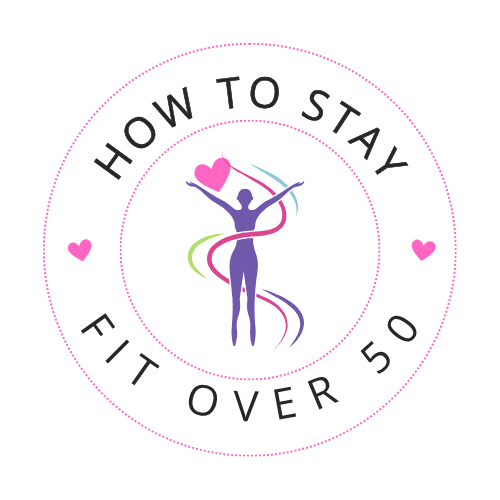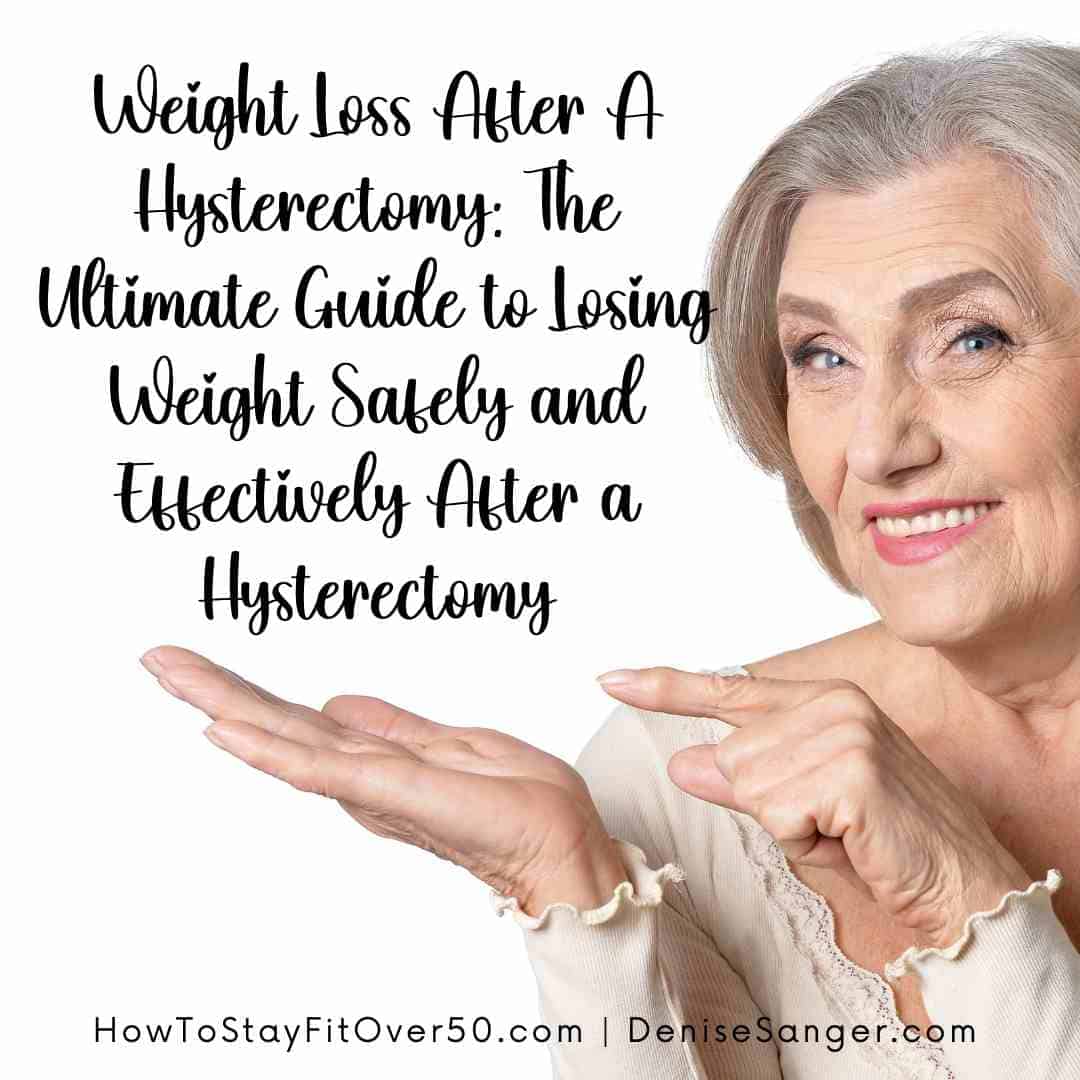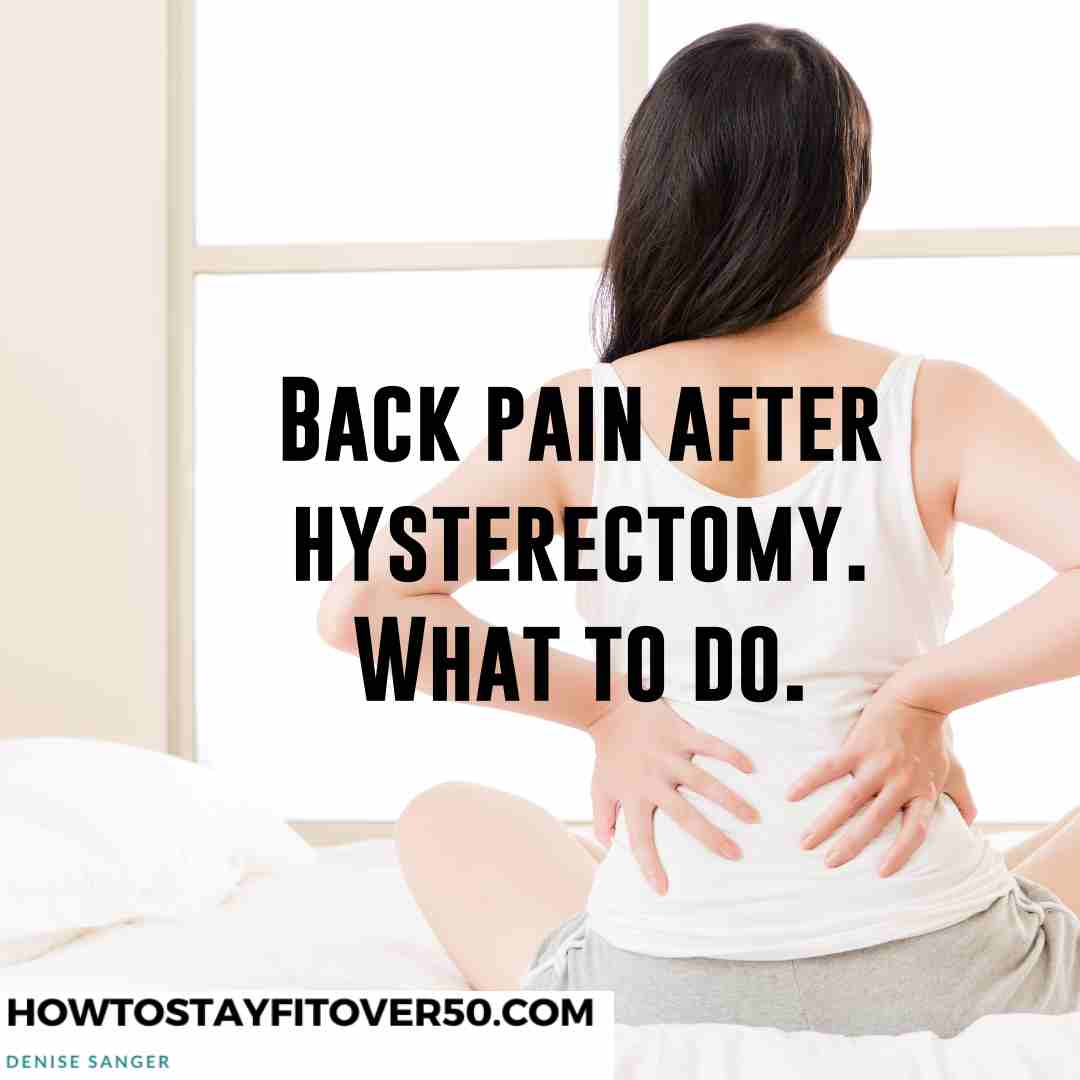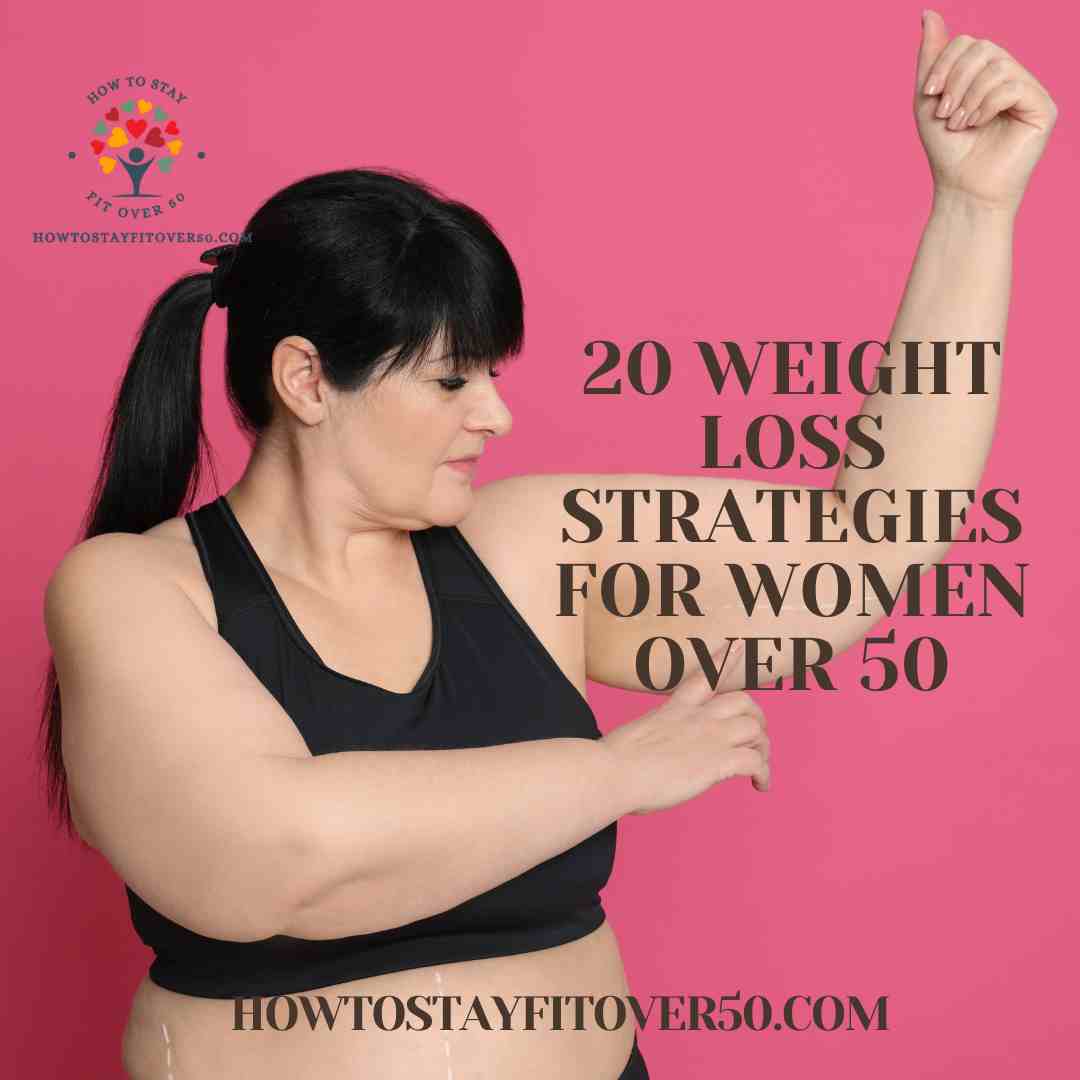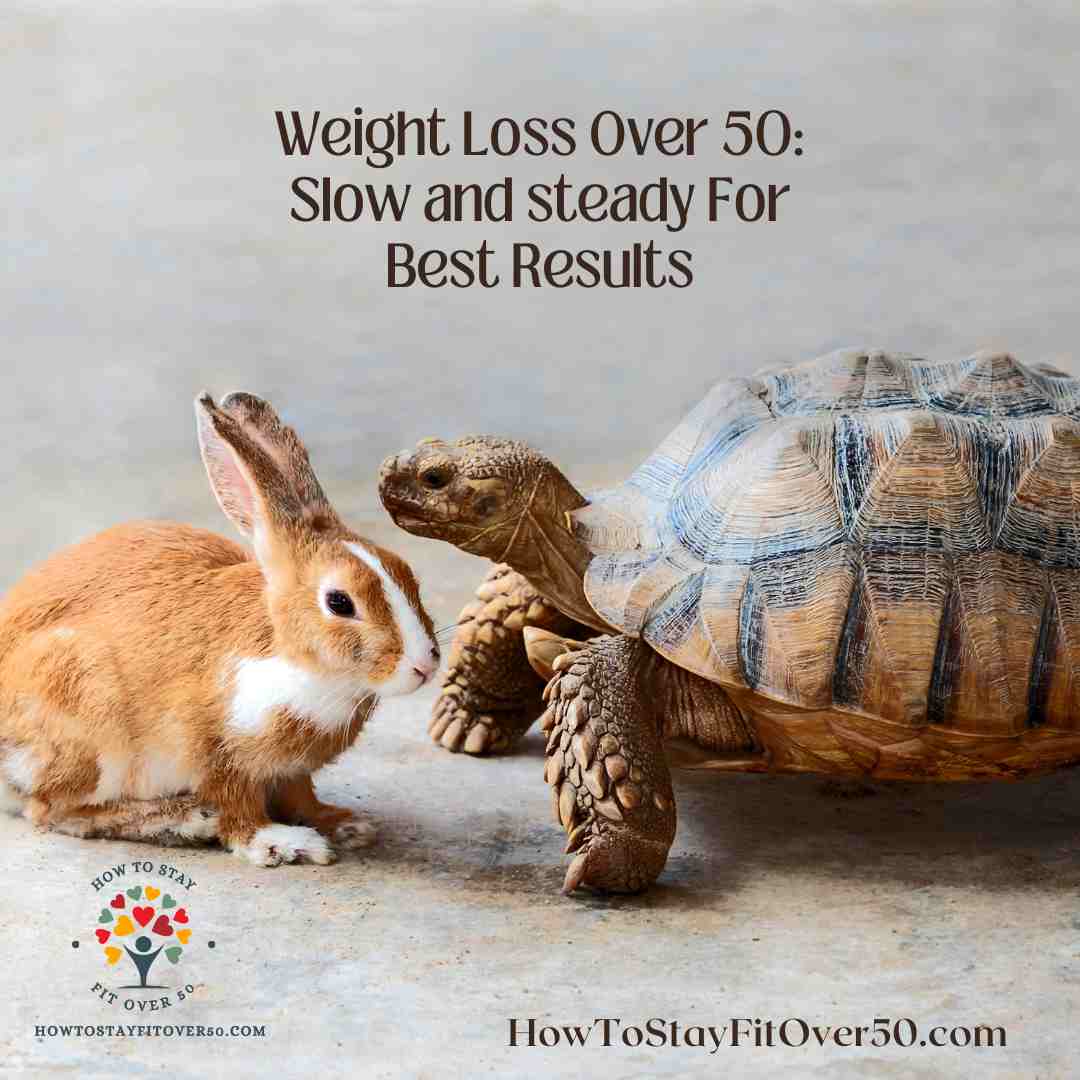We may earn money or products from the companies mentioned in this post.
Are you a woman who has recently undergone a hysterectomy and is now looking to shed those extra pounds? The journey to weight loss after a hysterectomy can be challenging. But don’t be afraid. I’ve been right where you are, and this article will help.
Losing weight safely and effectively after a hysterectomy requires a comprehensive approach that takes into account the hormonal changes and physical limitations that come with this procedure. In this guide, we will explore the most up-to-date research and expert advice on nutrition, exercise, and self-care specifically tailored to women who have had a hysterectomy.
From understanding the impact of hormonal changes on your metabolism to learning about the best exercises for strengthening your core, this guide will provide you with the tools and knowledge necessary to achieve your weight loss goals. Get ready to embark on a transformative journey towards a healthier and happier you!
Understanding the impact of a hysterectomy on weight loss
A hysterectomy is a surgical procedure that involves the removal of the uterus. While it can provide relief from certain health conditions, such as endometriosis or uterine fibroids, it can also have an impact on your weight.
One of the main reasons for this is the hormonal changes that occur after a hysterectomy. The ovaries are responsible for producing estrogen, a hormone that plays a key role in regulating metabolism. When the uterus is removed, the ovaries may also be affected, leading to a decrease in estrogen production.
This decrease in estrogen can slow down your metabolism, making it more difficult to lose weight. Additionally, some women may experience menopause-like symptoms after a hysterectomy, such as hot flashes or night sweats, which can also affect weight management.
To effectively lose weight after a hysterectomy, it’s important to understand these hormonal changes and adjust your approach accordingly. This may involve making dietary changes, incorporating exercise into your routine, and seeking professional guidance.
While weight loss after a hysterectomy may be more challenging, it is certainly not impossible. With the right strategies and mindset, you can achieve your weight loss goals and improve your overall well-being.
Importance of maintaining a healthy weight post-hysterectomy
Maintaining a healthy weight after a hysterectomy is crucial for several reasons. Firstly, excess weight can put additional strain on your joints and muscles, leading to increased discomfort or pain, especially in the lower back or pelvic area. Losing weight can help alleviate these symptoms and improve your overall quality of life.
Secondly, maintaining a healthy weight can reduce the risk of certain health conditions, such as heart disease, type 2 diabetes, and certain types of cancer. Women who have had a hysterectomy may already be at a higher risk for certain health issues, so it’s important to prioritize weight management as part of your overall health plan.
Lastly, achieving and maintaining a healthy weight can boost your self-confidence and body image. A hysterectomy can bring about a range of emotions and body changes, and weight gain can further impact your self-esteem. By focusing on your weight and overall health, you can regain control and enhance your self-image.
Safe and effective weight loss strategies after a hysterectomy
When it comes to losing weight after a hysterectomy, it’s important to approach it in a safe and healthy manner. Crash diets or extreme exercise regimens can be detrimental to your overall well-being, especially considering the physical limitations that may come with a hysterectomy.
Instead, focus on making sustainable lifestyle changes that promote gradual and long-term weight loss. Here are some safe and effective strategies to consider:
1. Set realistic goals: Start by setting realistic weight loss goals. Aim for a gradual weight loss of 1–2 pounds per week, as this is considered a safe and sustainable rate. Remember, slow progress is still progress.
2. Focus on nutrition: Emphasize a balanced and nutritious meal plan that includes a variety of fruits, vegetables, lean proteins, whole grains, and healthy fats. Opt for nutrient-dense foods that provide essential vitamins and minerals while keeping you satisfied.
3. Practice portion control: Pay attention to portion sizes and practice mindful eating. Use smaller plates or bowls to help control your portions and avoid mindlessly overeating. Listen to your body’s hunger and fullness cues.
4. Stay hydrated: Drinking an adequate amount of water throughout the day can help boost your metabolism, aid digestion, and promote overall well-being. Aim for at least 8 cups of water daily.
5. Exercise: Engage in regular physical activity that is safe and appropriate for your post-hysterectomy condition. Consult with your healthcare provider before starting any new exercise program. Focus on low-impact exercises that strengthen your core, such as walking, swimming, or yoga.
6. Self-Care & Self-Love: Prioritize self-care activities that help reduce stress and promote overall well-being. This can include activities such as meditation, deep breathing exercises, getting enough sleep, or engaging in hobbies that bring you joy.
By implementing these strategies into your daily routine, you can achieve safe and effective weight loss after a hysterectomy. Remember, consistency is key, and small changes can lead to big results over time.
Creating a balanced and nutritious meal plan
When it comes to losing weight after a hysterectomy, nutrition plays a crucial role. Creating a balanced and nutritious meal plan can help support your weight loss journey and provide your body with the essential nutrients it needs. Here are some tips to help you create a meal plan that is both satisfying and healthy:
1. Eat whole foods: Incorporate a variety of whole foods into your diet, such as fruits, vegetables, whole grains, lean proteins, and healthy fats. These foods are nutrient-dense and can help keep you feeling satisfied.
2. Watch your portions: Pay attention to portion sizes and be mindful of your calorie intake. Use measuring cups or a food scale to ensure you are consuming appropriate portion sizes.
3. Eat lean proteins: Protein is essential for building and repairing tissues, as well as supporting muscle growth. Include lean sources of protein in your meals, such as chicken breast, fish, tofu, or legumes.
4. Eat complex carbs: Opt for complex carbohydrates, such as whole grains, brown rice, quinoa, or sweet potatoes. These carbohydrates provide sustained energy and can help keep you feeling full.
5. Choose foods high in fiber: Fiber is important for digestion and can help promote feelings of fullness. Include fiber-rich foods, such as fruits, vegetables, whole grains, and legumes, in your meals.
6. Drink water: Drinking enough water is important for overall health and can also help control appetite. Make sure to drink an adequate amount of water throughout the day.
Remember, a balanced and nutritious meal plan should be sustainable and enjoyable. Experiment with different recipes and flavors to keep your meals interesting and satisfying. Consulting with a registered dietitian can also provide personalized guidance and support.
Incorporating exercise into your post-hysterectomy weight loss journey
Exercise is an essential component of any weight loss journey, including after a hysterectomy. However, it’s important to approach exercise in a safe and appropriate manner, taking into consideration any physical limitations or restrictions you may have. Here are some tips for incorporating exercise into your post-hysterectomy weight loss journey:
1. Always check first with your doctor: Before starting any new exercise program, consult with your healthcare provider to ensure it is safe and appropriate for your condition. They can provide guidance on any restrictions or modifications you may need to make.
2. Begin slowly: Begin with low-impact exercises that are gentle on your body, such as walking, swimming, or stationary cycling. Start with shorter durations and gradually increase the intensity and duration as you build strength and endurance.
3. Work on core strength: Strengthening your core muscles is important after a hysterectomy, as it can help improve posture, stability, and overall strength. Incorporate exercises such as pelvic tilts, bridges, and gentle abdominal exercises into your routine.
4. Include strength training: Resistance training, such as using dumbbells or resistance bands, can help build lean muscle mass and increase metabolism. Start with light weights and gradually increase as you become stronger.
5. Always listen to your body: Pay attention to how your body feels during and after exercise. If you experience any pain or discomfort, modify the exercise or consult with your healthcare provider. It’s important to listen to your body’s signals and not push yourself too hard.
6. Change things: Keep your exercise routine interesting by incorporating a variety of activities. Try different types of exercises, such as yoga, Pilates, or dance classes, to keep yourself motivated and engaged.
Remember, the goal is to find exercises that you enjoy and that are suitable for your post-hysterectomy condition. Consistency is key, so aim for regular physical activity that you can maintain in the long term.
Tracking progress and staying motivated
Tracking your progress and staying motivated is crucial when it comes to weight loss after a hysterectomy. It can help you stay accountable, identify areas for improvement, and celebrate your achievements. Here are some strategies to help you track your progress and stay motivated:
1. Track your meals: Track your daily food intake to help you become more aware of your eating habits. This can help you identify patterns, make healthier choices, and stay on track with your nutrition goals.
2. Track your exercise: Invest in a fitness tracker or use a smartphone app to track your physical activity. This can help you monitor your steps, calories burned, and overall activity level. Set goals and challenge yourself to improve each week.
3. Take your stats In addition to weighing yourself, take measurements of your waist, hips, and other areas of your body. Sometimes, the scale may not reflect your progress accurately, but measurements can provide a more comprehensive picture of your body changes.
4. Look at goals outside your scale: Instead of solely focusing on the number on the scale, set non-scale goals that are meaningful to you. This can include fitting into a certain pair of jeans, increasing your energy levels, or completing a physical activity milestone.
5. Find kindred spirits: Surround yourself with a supportive network of friends, family, or online communities who can provide encouragement and motivation. Share your goals and progress with them, and celebrate your achievements together.
6. Rewards!: Celebrate your achievements along the way. Treat yourself to non-food rewards, such as a massage, a new workout outfit, or a day trip. Recognize the hard work you are putting in and acknowledge your progress.
Remember, weight loss is a journey, and there may be ups and downs along the way. Stay positive, be kind to yourself, and celebrate every step forward.
Seeking professional guidance and support
Seeking professional guidance and support can greatly enhance your weight loss journey after a hysterectomy. Consider reaching out to the following professionals who can provide personalized advice and support:
1. A dietician can help you create a personalized meal plan, address any specific dietary concerns, and provide ongoing support and guidance.
2. PT: If you have physical limitations or are experiencing pain or discomfort, a physical therapist can help develop a tailored exercise program that is safe and effective for your condition.
3. Trainers: Working with a personal trainer who specializes in post-hysterectomy exercise can provide guidance on proper form, technique, and progression. They can help create a customized exercise plan based on your goals and physical abilities.
4. Counselors: Weight loss after a hysterectomy can bring about a range of emotions. Seeking the help of a therapist or counselor can provide support in dealing with any emotional challenges or body image concerns.
Remember, you don’t have to navigate this journey alone. Professionals can provide the expertise and support you need to achieve your weight loss goals in a safe and healthy manner.
Dealing with emotional challenges during weight loss after a hysterectomy
Weight loss after a hysterectomy can bring about a range of emotional challenges. It’s important to acknowledge and address these challenges to ensure a healthy and positive weight loss journey. Here are some strategies to help you deal with emotional challenges:
1. Be kind to YOU: Be kind to yourself and practice self-compassion. Weight loss takes time and effort, so be patient with yourself and celebrate every small achievement along the way.
2. Celebrate off scale successes: Shift your focus from the number on the scale to non-scale victories. Celebrate improvements in energy levels, strength, endurance, or clothing size. Recognize that weight loss is not the only measure of success.
3. Reach out for support: Reach out to friends, family, or support groups who can provide encouragement and understanding. Share your experiences, challenges, and successes with others who can relate to your journey.
4. Body Image: A hysterectomy can bring about changes in your body, which may impact your body image. Seek support from a therapist or counselor who can help you navigate these emotions and develop a positive body image.
5. Stress management: Find healthy ways to manage stress, such as engaging in relaxation techniques, practicing mindfulness, or engaging in activities that bring you joy. Stress can impact weight loss progress, so it’s important to find healthy coping mechanisms.
Remember, weight loss is not just about the physical aspect but also encompasses emotional well-being. Prioritize self-care and seek support when needed.
Common mistakes to avoid when trying to lose weight after a hysterectomy
When it comes to losing weight after a hysterectomy, it’s important to avoid common mistakes that can hinder your progress. Here are some mistakes to watch out for:
1. Portions, portions, portions: Pay attention to portion sizes and avoid mindless eating. Even healthy foods can contribute to weight gain if consumed in excessive amounts.
2. Say no to fads: Avoid falling into the trap of fad diets that promise quick results. These diets are often unsustainable and can lead to nutrient deficiencies or weight regain.
3. EAT. Skipping meals can slow down your metabolism and lead to overeating later in the day. Aim for regular, balanced meals and snacks to keep your metabolism and energy levels stable.
4. Include strength training: Strength training is crucial for building lean muscle mass, which can increase your metabolism and aid in weight loss. Incorporate strength training exercises into your routine to maximize results.
5. Ask for help: It’s important to seek professional guidance, such as a registered dietitian or personal trainer if you are struggling or need help.
Always remember one day at a time. That’s what I do and have been doing since my hysterectomy 12 years ago. You got this!
